- ERG Master’s Paper: Design Thinking For the Poor
- Examining Design for Development Online: An HCD Analysis of Openideo using HCD/UCD Metrics
- OpenIDEO Usability Assessment Final Report – Spring 2014
- Personal Website
- Academia
- Life@ERG blog: Getting Inclusive with Data Science: ERG Students Initiate Data & Diversity Course at Cal
- Life@ERG blog: Something from Nothing: Lessons from Two Years on the DIL Idea team
- Life@ERG blog: How Does One Jump-Start A Movement?
- Life@ERG blog: Nairobi Revealed
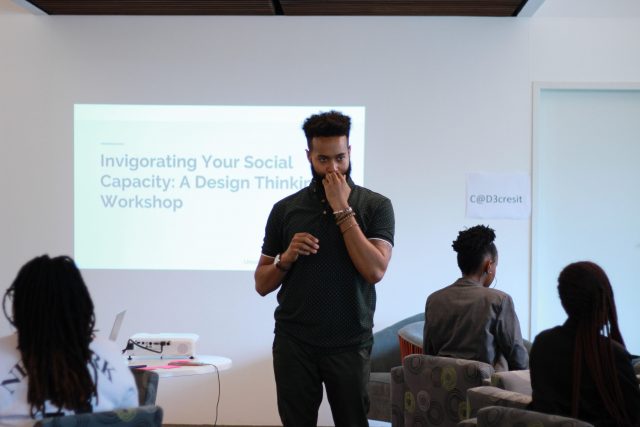
Facilitating a design workshop at the Botswana Innovation Hub on increasing social capacity.
What difference has researching with ERG made for you? ERG aims to support academic freedom. No other program I came across had space, resources, and the human capital available to support the exceptional breadth of insight I use to chart my research journey. Reframing how disciplines – and people inside them – work together to solve complex problems is critical if we are to remake our increasingly complex world. Why did you choose ERG? What made it unique for you? I chose ERG because of the freedom I mentioned earlier, but also because the program gave me an opportunity to remake myself. At the beginning of my Ph.D., I shifted from successful study in aerospace engineering and applied physics towards projects which investigate how people innovate to address global impoverishment. What made it unique was the opportunity to evolve; to use, and situate, engineering practice in a larger world of problems, political and social as well. Few programs do so with such breadth and depth.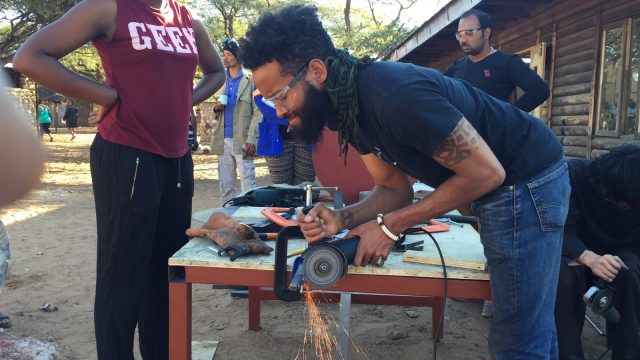
Making supports for a deep sand wheelchair in the Kalahari Desert
How has your background been a part of your research and time at ERG? One of my favorite lessons from ERG, from Professor Dick Norgaard during his last year of active teaching, was about this very topic. Though his credentials as a researcher were altogether formidable, his personal life was front and center in his teaching, research, and professional life. It showed me how it was possible, healthy, and productive to bring your whole self to your work. Many programs teach the opposite—that those who are professionally productive make their lives, passions, and personal goals invisible. I take that lesson everywhere I go. That means I take my identity as a black man into all of my work; as a facilitator, as a researcher, as a mentor, as a consultant. My experiences benefit what I bring to the table, instead of hindering it, and I aim to make spaces where the same is true for all whom I work with.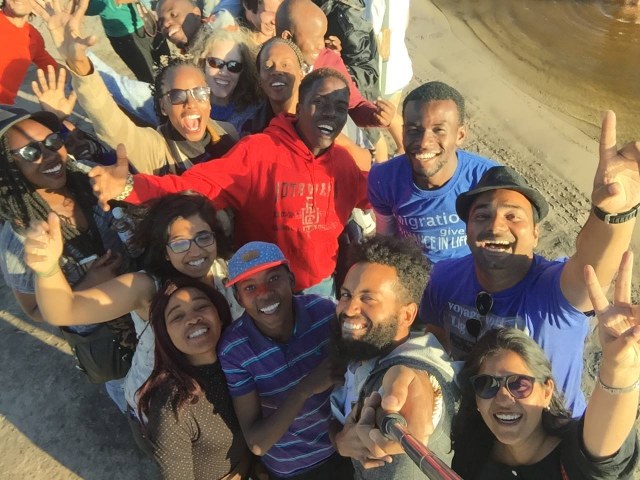
In the field with International Development Design Summit recipients, relaxing on the Okavango River
What advice do you have for prospective students? What can they expect? The advice I have for prospective students: open your mind. ERG is not a normal Ph.D. program, and you won’t leave as same person you entered as. So, ensure you have the support you need: financially, socially, health-wise, and dive into the deep end of knowledge. If you have the support you need to succeed, the possibilities are endless. In what ways is the work that you’ve been involved at ERG “cutting edge?” My field, by definition, lies on the “cutting edge” of practice, and that’s precisely the reason why I became interested in it in the first place. In the global system of multidimensional poverty, whether addressing energy issues, water and sanitation, food and agriculture, education, or many others, a consistent interest of specialists in these field is expressing the need to “innovate” and to solve complex problems with novel solutions. Learning about what “innovation” means—the history of innovation thought and practice, how it can be best supported, and what innovations benefit whom—drives my quest for knowledge. With this understanding, it assists anyone who cares about making good, new solutions to difficult problems.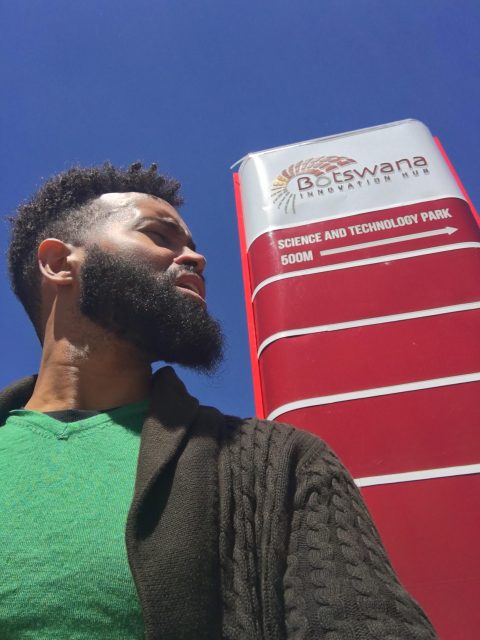
Pierce outside the Botswana Innovation Hub
Who have you been working with at ERG? My main advisor has been Alice Agogino, an ERG affiliate and Co-director for the Blum Center for Developing Economies, whom I laud for my fantastic mentorship and support. I could not have had a better relationship with an advisor during this academic journey. At ERG, the exceptional tutelage of Isha Ray expanded my worldview and helped me develop the historical context for international development, and the previous chair, Harrison Fraker, expanded my understanding of the breadth of industrial and urban design practice. How do you define ERG’s mission in terms of “sustainable environment” and “just society?” How do you or your work contribute to this? Through my work, I intend to contribute to developing a “just society” and “sustainable environments” by ensuring that I spread tools and methods to communities that can help the entire world redesign for the better. This prioritizes including the impoverished, the unhoused, the voiceless, and the disempowered to be a part of a conversation that remakes our society to use and distribute our collective resources more equitably.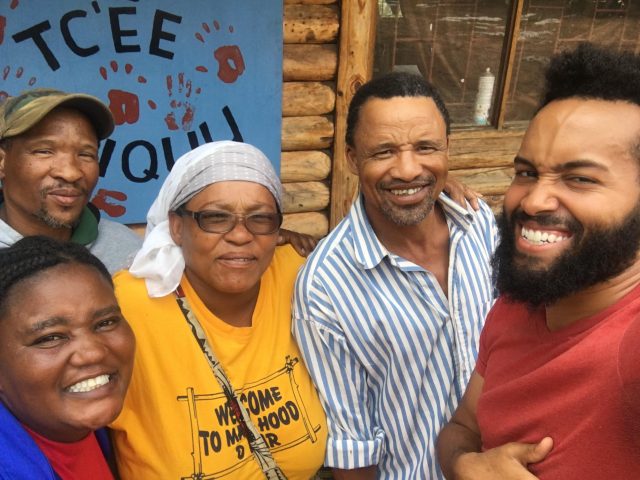
Visiting D’Kar to conduct research focus groups for ethnographic research.
Where do you envision yourself after ERG? In the far future, I’m looking to change the world. In the near future, after I complete my dissertation, I’m intending to develop some complimentary experience in innovation and design practice to develop an understanding of projects which aim to solve wicked problems.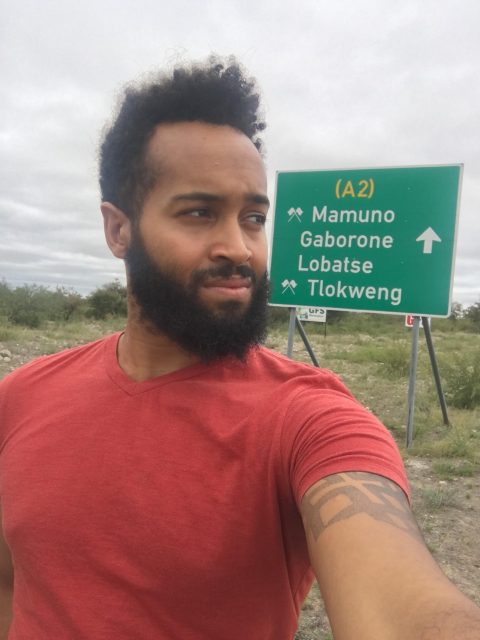
Pierce visiting the Tc’ee Nquu (Innovation Hub) In D’Kar, Botswana.